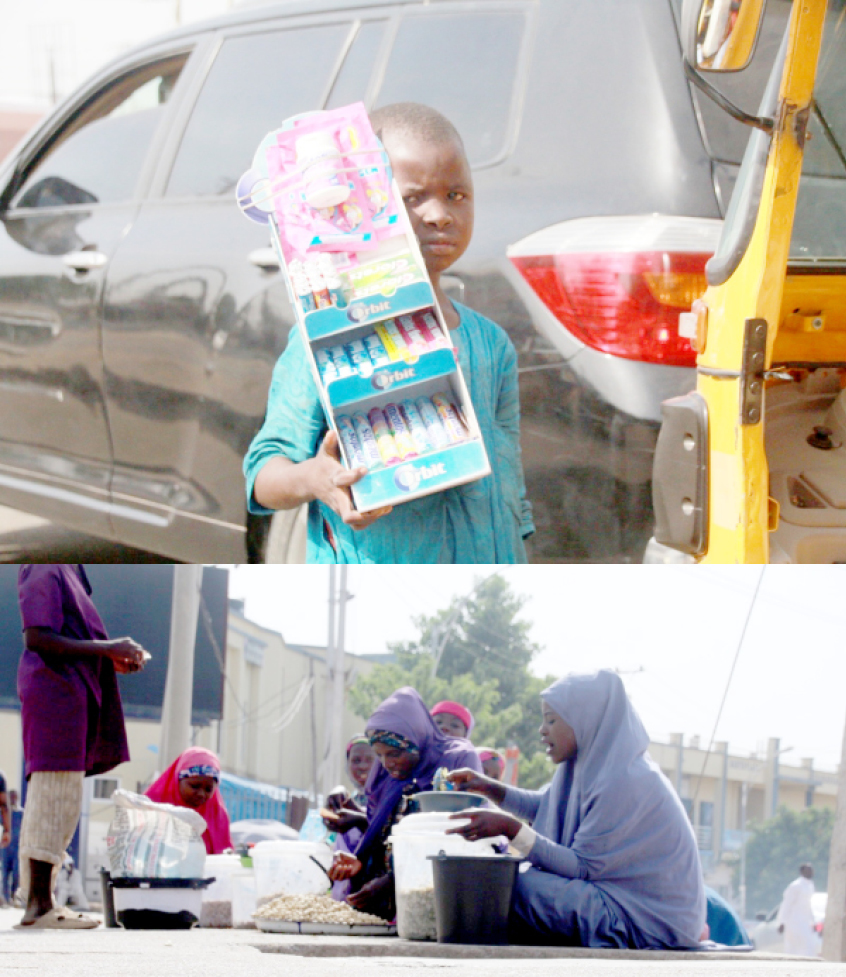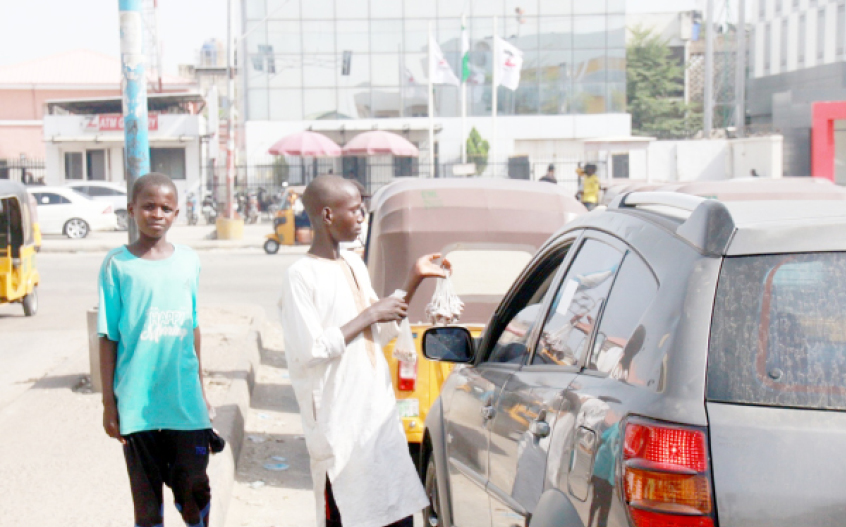Despite several programmes initiated by different governments in Kano State, the issue of child or underaged hawking remains an issue to contend with in the state.
In Kano, it is common to see underaged children in the early hours of the day roaming the streets, hawking wares, when their mates are preparing for or on their way to school. Thoughts on the mind of many are: “where/who are the parents of these innocent children and for who do they hawk?” as asked by a motorist.
The growing number of child hawkers in Kano has become a serious concern to many, and probably a setback to several attempts put in place by the state government at different stages especially the 2019 declaration of free and compulsory basic education, among other attempts.
It would be recalled that in 2022, the state government through the Hisbah Board made an attempt to step up the implementation of the state legislative instrument banning all forms of hawking, as well as begging, in the state as part of measures geared towards creating a healthier and more conducive environment for doing business.

During that period, the state’s Ministry of Women Affairs and Social Development mandated to drive the implementation of the Act, had, in collaboration with the Hisbah board, arrested and evacuated over 500 destitutes involved in the act. Those who were not indigenes of the state were repatriated to their respective states of origin, while the natives of the state were moved to their respective local government areas to be rehabilitated.
In June 2023, another milestone was said to have been achieved when the Child Protection Act was signed into law by former Governor Umar Abdullahi Ganduje.
Reacting to the gesture by the state government, United Nation Children Fund (UNICEF) Chief of Field Office in Kano, Mr Rahama R.M. Fara, said “The Kano State Child Protection Law is a remarkable achievement that benefits the children and people of Kano. It establishes a legal framework to ensure the protection of children’s rights within the state. Now that the law has been established, it is crucial to allocate the necessary resources and establish mechanisms for its effective implementation. We urge the new administration in Kano State to take this vital step and provide adequate resources to ensure the comprehensive enforcement of the law.”
Unfortunately, the issue of child hawking still persists and keeps increasing to an alarming rate in the state. Hawking has denied many children the right to attend school and as such, it has gradually become a part of everyday life for the children. Sadly, children between ages 7–10 years are involved in the practice, which has a negative effect on their health, education and wellbeing.
These innocent children are seen on the street chasing moving vehicles while trying to make a sale, thereby subjecting themselves to the danger of being knocked down by moving vehicles.
Aminu Bello is 11 years old. He hawks sweets (candies) along Sani Mashal Road in Kano municipal. According to him, he collects his wares from a shop because he has no capital. Every day, he makes a profit of between N200 and N300 after he has paid the owner of the shop from where he collects his wares. Aminu said about six of them (all children) collect wares from the same shop owner every day.
Aminu, whose father is late, leaves home in Tudun Murtala as early as 6:30am to start the day’s business. He lives with his mother and five siblings. “I don’t have any capital so I collect the sweets from a big shop owner on credit and after the sales, I return the unsold to the shop. I make a profit of N200 to N300 every day.”
When asked what he does with the money he makes, he said, “I give it to my mother for our upkeep.”
Another 10-year-old child hawker, Isah Musa, said he has been hawking since he was eight, adding that he had been hawking for people and that he had no specific wares he hawks. “Sometimes I hawk facemasks, sometime sachet water or childrens’ toys depending on what is available. I make up to N500 a day or less on many occasions,” he said.
When asked if he attends school, he said, “I really want to go to school, but how can I go to school when I have no one to give me food? My life has been on the streets and it is my school as well,” he said.
Sa’idu Shehu is a 12-year-old hawker who claimed that he attends school despite hawking on the streets of Kano metropolitan. According to him, he attends school in the morning and hawks in the evening to complement his mother’s business of selling food. He said his father is a roadside vulcanizer while his mother sells food and that all his five siblings attend school.
“My elder brother is in SS2 now and he stays with my father at their vulcanizing shop, I and my two sisters are in primary school while our last born is too small to be in school. I will continue to go to school because I want to be an engineer,” he said.
According to a Kano-based child rights advocate, Abubakar Khalid, no amount of governmental attempt will resolve the issue of child hawking in not only Kano State but the nation in general without addressing the poverty level in the nation. He added that though schools may be free in some places, not many can endure the economic hardship in the nation.
“In a situation like this, where over half of the population in our society today live, within the vicious circle of poverty, ill health, hunger and ignorance, irrespective of the nation’s wealth, what do you expect them to do? UNICEF records have shown that the poor constitute about 70 per cent of the Nigerian population of over 120 million and about the same number are living below $1 a day (UNICEF 2000). How do you eradicate or minimize the issue of child hawking without addressing poverty? This is what authorities have to consider first,” he said.
When contacted on the issue, Director General Kano Hisbah Board, Dr Abba Saidu Sufi, said that the board was saddled with responsibilities of tackling child street begging, including that of people with special needs from 2011 to 2015, adding that with the new state’s administration in place, there is a move to revisit the act and look at possible amendments to begin full enforcement of the act and other laws that will ensure that the children are given the needed attention.

 Join Daily Trust WhatsApp Community For Quick Access To News and Happenings Around You.
Join Daily Trust WhatsApp Community For Quick Access To News and Happenings Around You.


